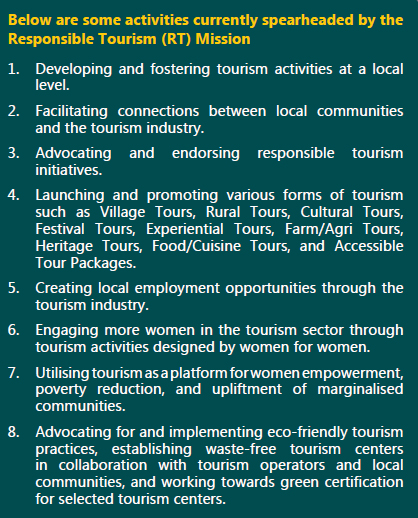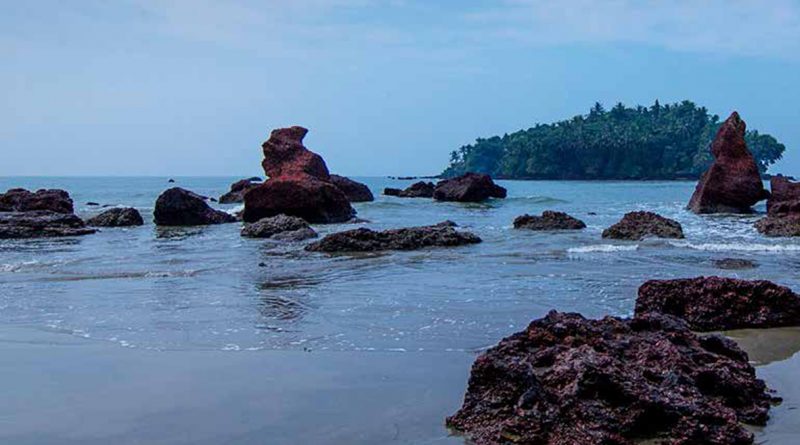Kerala’s Green Hamlets
-T.V. Subhash IAS
Director I&PRD
Responsible & Sustainable Practices In Rural Kerala
Exploring the world is more than a leisure activity; it offers a unique opportunity to engage with diverse cultures, immerse oneself in varied lifestyles, and appreciate the inherent beauty of nature. Renowned for its captivating landscapes and vibrant culture, Kerala has justifiably earned the epithet, “God’s Own Country.” It serves as an excellent example of a destination that has successfully managed to combine tourism with sustainable development, a principle strongly advocated by the United Nations World Tourism Organization (UNWTO). In Kerala, the concept of responsible tourism revolves around creating a harmonious relationship between tourist satisfaction and local prosperity.
These initiatives have profoundly revolutionised the perception of Kerala’s tourism, both domestically and globally. They have effectively broken the conventional model of tourism monopolised by the affluent and extended its benefits to the local communities. In 2008, responsible tourism was initiated as a pilot project in four strategic locations within the state. Following its success, the initiative was expanded in 2011 to three more sites. In 2017, a watershed decision was made to implement responsible tourism statewide, leading to the establishment of the Responsible Tourism Mission (RTM) in June 2017.
The primary aim of the RTM was to democratise tourism, making it an all-inclusive sector rather than an exclusive domain of the privileged few. The mission envisaged tourism as a potent instrument to promote rural development, alleviate poverty, and empower women. The RTM, formally established in August 2017, has since effectuated significant changes in Kerala’s tourism sector. It underscores the principles of responsible and sustainable tourism, embracing various forms such as village, rural, cultural, festival, experiential, farm/agri, heritage, food, accessible tourism, and women empowerment through tourism. The mission also boosts local artists and diverse arts, including martial arts.
The RTM plays a pivotal role in driving sustainable tourism development in Kerala. It encourages the production of local handicrafts, curates storytelling packages, and conducts crucial training programmes. Recognizing its profound achievements, the government has restructured the RTM as a government-owned society to bolster its contribution to sustainable and responsible tourism practices throughout Kerala. The RTM’s core activities comprise developing local tourism activities, bridging local communities with the tourism industry, endorsing responsible tourism initiatives, promoting diverse forms of tourism, generating local employment, engaging women in the tourism sector, advocating ecofriendly tourism practices, and fostering a symbiotic relationship between tourists, the industry, and the local community. The RTM also organises extensive training programmes to inculcate the skills required for sustainable tourism among various societal sectors, local government bodies, and officials associated with tourism. Workshops, skill-building sessions, homestay management courses, artisanal workshops, and comprehensive training covering all necessary skills for the tourism industry are some of the key initiatives facilitated by the RTM.
However, tourism activities should not be confined to a few selected centers. To ensure sustainable tourism, it is crucial to avoid over-crowding and unchecked construction at popular tourist sites. The RTM aims to decentralize tourists to a variety of destinations, preserving the natural beauty of Kerala, and promoting responsible tourism development. Every region of Kerala is a mosaic of enchanting villages, panoramic landscapes, cascading waterfalls, vibrant festivals, diverse culinary traditions, serene water bodies, and a pleasant climate. The RTM’s mission is to develop these resources into sustainable tourism centers, guided by the principles of responsible tourism, and with an active public engagement, thus ensuring Kerala’s enduring allure.



